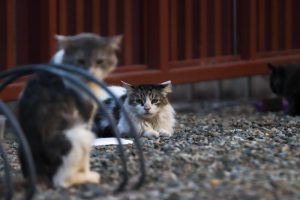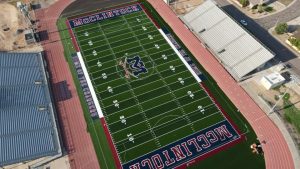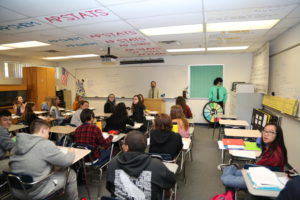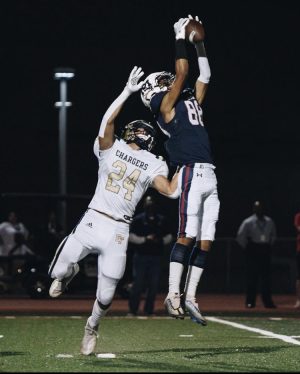Tempe hosts ” Take back the Night”
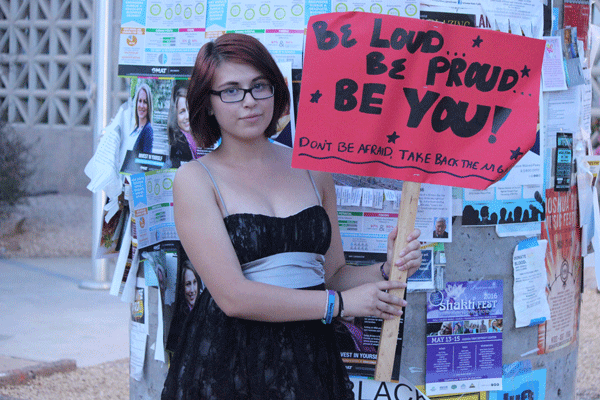
April 20, 2016
The chants rang twice each before rotating to the next one. “2, 4, 6, 8 No more violence, no more hate!”, “People unite! Take Back the Night!”, “Join together! Free our lives! We will not be victimized!”. Dozens of feet marched on along Mill Avenue, banners and posters rhythmically bouncing up and down with each step. Some of the marchers were survivors, some allies, some volunteers, but all were united. On April 14th, 2016 the city of Tempe was taking back the night.
“Take Back the Night honors survivors of sexual and domestic violence, hate crimes, and trafficking”, La Frontera worker Amy Palmisano said, “It’s an event for survivors to come together and community members to support people and make a call for the streets to be safe and the world to be a safer place, more accepting, and respectful.”
April is Sexual Assault Awareness Month.The purpose of the month is to raise awareness for sexual assault and the people it affects. Take Back the Night is one of the many anti-rape campaigns that offers a way for survivors and allies to participate in the month. La Frontera is a local organization that provides behavioral health services to children, adults, and families. The organization has partnered up with Take Back the Night in order to host rallies in Arizona.
The rally showcased dozens of organizations that aimed to help stop violence, support survivors, and provide help to those dealing with trauma and violence in their lives. One such organization at the rally was The Clothesline Project.
“The Clothesline Project is a national effort to raise awareness of violence.” Crisis Team Member and Take Back the Night volunteer Nathan Rehm said, “Survivors of violence and their loved ones create these t-shirts to share their stories, which then hang shoulder-to-shoulder on a clothesline with clothesline pins for public display.”
The rally showcased art from survivors across ASU’s Hayden Lawn. Each piece of art was unique and focused on each survivor’s journey. Some represented their story, others presented a sense of healing and recovery. The shirts made by participants of The Clothesline Project were no different.
“There’s a lot of freedom to express that story [about one’s interaction with violence].” Rehm said, “It’s not an art contest, it’s all about just your own process of getting your story out on the t-shirt. Whatever it looks like is exactly what it should look like.”
Survivors and allies took turn taking the stage to share their stories. After all had spoken the masses picked up their posters to picket around the area. All were united against violence.
“The intention is to break the silence that exists around sexual assault and other kinds of violence that happens in the communities.” Rehm said, “The project helps those that are touched by the violence to speak out, to heal, and to educate the public about this national epidemic.”
Whether it was by donating to an organization, participating in The Clothesline Project, or simply marching, the attendees of the rally were joined together for a good cause. As one survivor’s’ inspiring t-shirt hanging from a clothesline read, “He took my power. He took my pride. I’m taking it all back.” Just like this survivor, Tempe was taking it all back.
